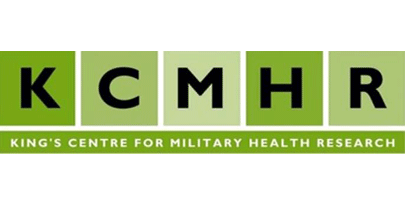MAVERICK: A Smartphone App to Predict Cannabis Use and Post-traumatic Stress Disorder Symptoms in UK Veterans - Recruiting Now
Since drug use estimates in the UK began in 1995, cannabis has consistently been rated as the most used drug in England and Wales according to the Office for National Statistics, with 14 million adults reporting they had used cannabis.
Emerging research suggests that veterans in the US view cannabis as a safe, low-risk alternative to other substances, with therapeutic benefits such as relief from symptoms of trauma associated with military service. Among veterans in the US, recent estimates suggest that over 70% with problematic cannabis use also meet criteria for PTSD.
Research has shown that veterans may use cannabis to self-medicate and cope with the distressing symptoms of PTSD. Estimates for UK veterans with PTSD who use cannabis are not currently available, with a distinct dearth of research in this area, rendering veterans who have both been exposed to trauma and use cannabis, a vulnerable and neglected population.
Screening for mental health post-deployment
To support veterans with mental health needs, screening programs have been introduced in several countries including the UK and US. Such programs assess veterans for mental health conditions and identify those who may be at risk for developing mental health problems such as PTSD before they chronically manifest. Areas where this has been used effectively is alcohol use where those who drink at harmful levels can be identified and make use of alcohol interventions such as DrinksRation. However, screening and signposting for co-occurring substance misuse and PTSD currently do not exist.
This highlights a critical gap in the comprehensiveness of current screening programs and the ability to identify and support veterans with co-occurring PTSD and problematic cannabis use. As such, there are currently no effective strategies for predicting risk of PTSD and problematic cannabis use to inform early intervention.
As the world of digital health rapidly expands and evolves, screening procedures are adapting to include remote measurement technologies via a combination of active (e.g., self-report symptom tracking) and passive (e.g., health data from wearable devices) data. The use of remote measurement technologies provides the potential to closely track an individual’s health symptoms in real time and identify symptom onset or relapse. Such technologies are an exciting area of research that holds promise for early intervention and prevention work with individuals at risk of developing mental health conditions.
The MAVERICK study
Little is known about predicting the onset, course, and patterns of PTSD and comorbid cannabis use in veterans as well as whether engagement with remote measurement technologies is acceptable in this population. To address this, we are conducting a 4-week feasibility study to assess the acceptability and utility of the MAVERICK app to collect both active and passive data to predict PTSD and cannabis use symptoms in a UK veteran population. While the app will not predict PTSD or cannabis use, it will provide unique insights to help future researcher.
Get involved
We are seeking to recruit participants who have left service in the past 2 years, own a smartphone, own a wearable device, have used cannabis in the last month and have symptoms of PTSD.
We will be collecting active and passive data from participants via their wearable device (e.g., Apple Watch or Fitbit) and the installation of the MAVERICK app on their smartphone. The study will take place over a 28-day period, during which participants will be asked to complete brief questionnaires at baseline, daily, weekly, and final follow-up about their mental health, PTSD symptoms and cannabis use. There is also the opportunity to take part in subsequent follow-up research.
At the end of the study, participants who complete the final questionnaire will receive a £50 Love2Shop voucher as a thank you for taking part.
Want to know more?
If you want to know more please click here for more information. Please share our study with colleagues and those who may be interested.
If you have any questions, please get in touch: [email protected]
We have updated this article to clairfy how screening is used in a UK context.
